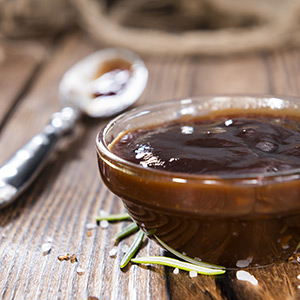- 5 unforgettable BBQ marinades
- How to Make a Perfect Roast Every Time
- Filet mignon: different recipes for different cuts
- Guide to Cooking Beef
- Tips on How to BBQ Like a Pro
- 5 Ways To Reinvent the Burger
- Prepare and Cook Sausages
- Skewers Bar: Pile Up on Flavour
- 6 Pork Cuts You’re Sure to Love
- Spices to Flavour Meat
- Soul Food at Home
The Secrets to Great Marinades

Dry or wet, a rub is a great way to enhance the flavours of your meat, fish, or meat substitutes before cooking them. A rub will also make them more tender and can extend their shelf life. Sweet, spicy, aromatic: there’s a rub for every taste!
Types of marinade
There are two types of marinades:
Wet marinade
The basic wet marinade always starts with an acid ingredient to break down the fibres and make the flesh softer:
- white or red wine
- unsweetened citrus
- apple or white cranberry juice
- flavoured vinegar
- beer
- yogurt
- mustard
- Tamari sauce
Oil and spices are added to this acid ingredient. Aromatic fruits and vegetables can also be added to the mixture.
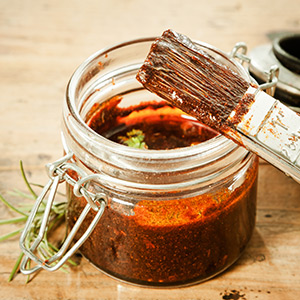
Dry marinade
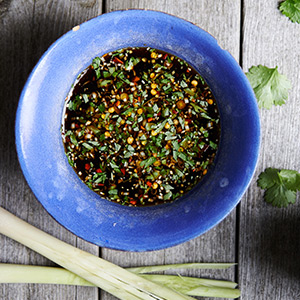
A dry marinade is used primarily to flavour and heighten the taste of meat without necessarily tenderizing it.
The basic dry marinade consists of herbs, spices, aromatic compounds mixed with a small amount of oil and, at times, alcohol.
The meat is not left very long in a dry marinade because its purpose is simply to perfume the meat.
Tips and advice
- The numerous herbs and spices available today provide endless opportunities when preparing a dry marinade.
- If you have more of a sweet tooth, add a little maple syrup.
- If you prefer spicy, add some Tabasco sauce, harissa, Worcestershire sauce or a little hot pepper.
- Soy sauce, tamari, Hoisin oyster sauce will add a salty taste to the marinade.
Expert tip
Calculate at least 250 ml (1 cup) of marinade per kilo (2.2 pounds) of meat.
Recipes for a successful BBQ
Basic principles of marinating meat
Containers
- Use glass, porcelain or stainless steel containers.
- Avoid aluminum, which will oxidize on contact with acid ingredients in the marinade and transfer a metal taste to your food. The same advice applies to tools and utensils.
- Place the meat in the bag, pour in the marinade, remove the air and set the bag in a bowl.
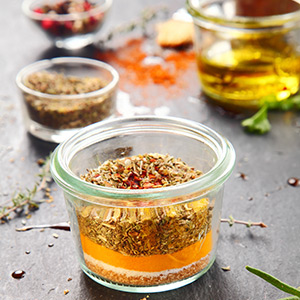
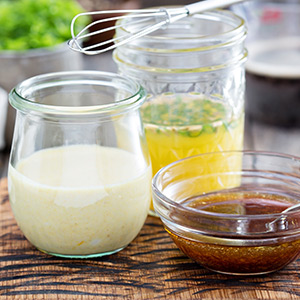
Techniques
- Refrigerate in an air-tight container to avoid any proliferation of bacteria and to protect other foods in the fridge from absorbing the aroma of the marinade.
- For thicker cuts of meat, it is a good idea to prick the flesh here and there to allow the marinade to better penetrate the meat.
- Never re-use marinade that has been in touch with raw meat. It should be discarded. If you would like to use it as a sauce to flavour the cooked meat, the marinade should be boiled for 10 to 15 minutes prior to serving.
Marinating time
- For best results, meat should be left to marinate at least one hour, which gives it time to absorb the flavour and become more tender.
- Results are even more satisfying when the meat is left to marinate overnight (depending on thickness) because the longer it marinates, the more flavourful it becomes.
- Marinating time should not exceed 24 hours however because after this time, the marinade will actually start to cook the meat.
